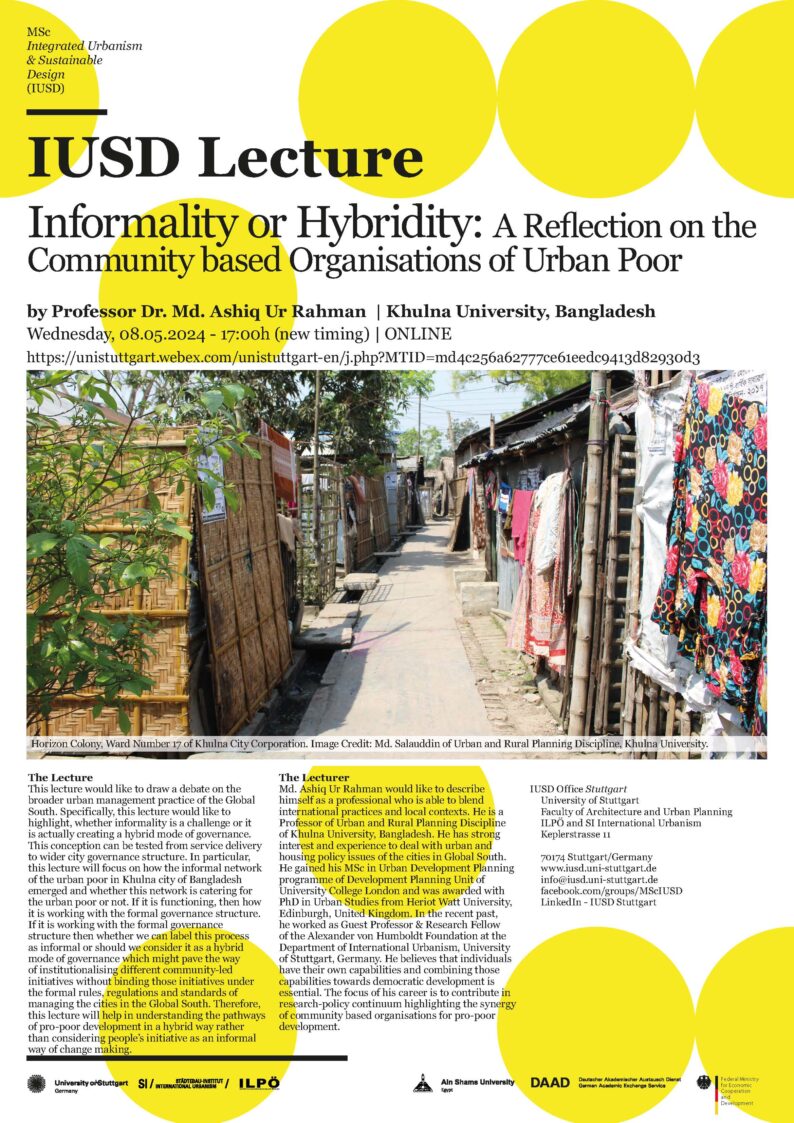New timing: Wednesday 8 May at 17h, online only.
Join us for a lecture by Professor Dr Md Ashiq Ur Rahman of Khulna University on “Informality or Hybridity: A Reflection on the Community Based Organisations of Urban Poor”.
This lecture would like to draw a debate on the broader urban management practice of the Global South. Specifically, this lecture would like to highlight, whether informality is a challenge or it is actually creating a hybrid mode of governance. This conception can be tested from service delivery to wider city governance structure. In particular, this lecture will focus on how the informal network of the urban poor in Khulna city of Bangladesh emerged and whether this network is catering for the urban poor or not. If it is functioning, then how it is working with the formal governance structure. If it is working with the formal governance structure then whether we can label this process as informal or should we consider it as a hybrid mode of governance which might pave the way of institutionalising different community-led initiatives without binding those initiatives under the formal rules, regulations and standards of managing the cities in the Global South. Therefore, this lecture will help in understanding the pathways of pro-poor development in a hybrid way rather than considering people’s initiative as an informal way of change making.
Md. Ashiq Ur Rahman would like to describe himself as a professional who is able to blend international practices and local contexts. He is a Professor of Urban and Rural Planning Discipline of Khulna University, Bangladesh. He has strong interest and experience to deal with urban and housing policy issues of the cities in Global South. He gained his MSc in Urban Development Planning programme of Development Planning Unit of University College London and was awarded with PhD in Urban Studies from Heriot Watt University, Edinburgh, United Kingdom. In the recent past, he worked as Guest Professor & Research Fellow of the Alexander von Humboldt Foundation at the Department of International Urbanism, University of Stuttgart, Germany. He believes that individuals have their own capabilities and combining those capabilities towards democratic development is essential. The focus of his career is to contribute in research-policy continuum highlighting the synergy of community based organisations for pro-poor development.
The lecture will take place online through this link.



